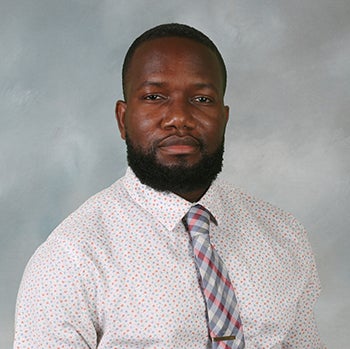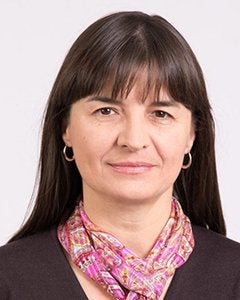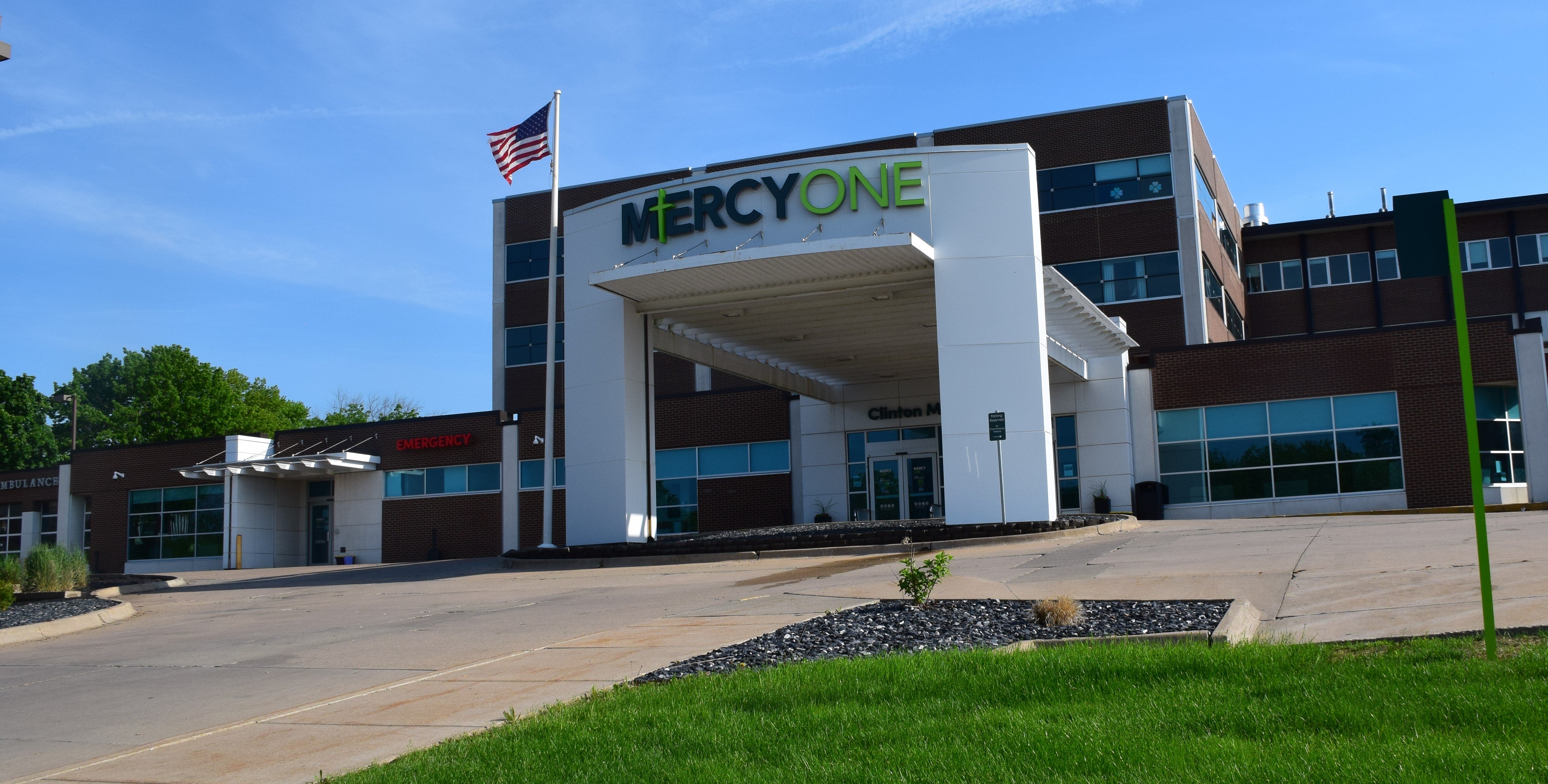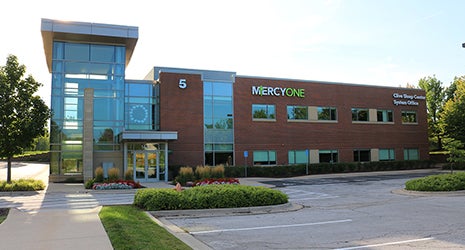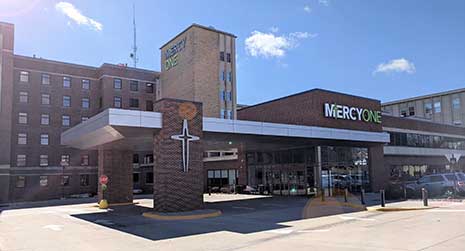Sleep Medicine
When you're feeling low on energy and struggling to focus because you're not getting enough rest, it might be time to enlist the help of a MercyOne sleep expert. Our providers can help in diagnosing the cause of those sleepless nights. If you are struggling to fall asleep, you find yourself waking repeatedly throughout the night or you are struggling to get a good night's rest, you might be suffering from an undiagnosed sleep disorder.
At MercyOne, our experts work to ensure you, and children ages 2 and older, are getting the highest quality of sleep through a personalized and comprehensive approach to sleep care - providing consultation, evaluation, treatment and thorough follow-up care. We're dedicated to helping you achieve the best possible sleep so you can live your best life.
What is a sleep disorder?
Sleep disorders refer to a change or disturbance in your normal sleep pattern. Sleep disorders may impact both the amount and quality of sleep you receive and can impact your life both physically and mentally without proper diagnosis and treatment.
At MercyOne, we recognize that sleep is an essential to you, and when you don’t sleep well, you put your job, relationships, productivity, health and safety at risk.
In addition, poor sleep increases the risk of a number of chronic diseases and conditions such as diabetes, cardiovascular disease, obesity and depression as well as machine and motor vehicle accidents.
What are common sleep disorders?
Insomnia
Insomnia is the inability to fall asleep regularly or awakening during sleep. Insomnia is a symptom that can be caused by a variety of conditions: psychological (chronic depression or temporary stress), environmental (noise) or physiological (temporary pain or chronic breathing disorder). An irregular sleeping schedule or drinking caffeinated beverages close to bedtime also can cause insomnia.
Sleep apnea and snoring
Snoring is not only annoying, it may be the symptom of a more serious sleep disorder called sleep apnea.
If you have sleep apnea, you periodically stop breathing while sleeping. You may stop breathing just a few times or hundreds of times each night. You may not breathe for only a few seconds or as long as two minutes. When you resume breathing, there may be a loud snort or gasp – and, you may briefly awaken.
Sleep apnea is usually associated with daytime sleepiness because your rest is regularly disturbed. High blood pressure and weight gain are often associated with this disorder. Sleep apnea is most common in men who have high blood pressure, are overweight and snore, but anyone can be affected by this sleeping problem.
Restless leg syndrome
Restless leg syndrome (RLS) is a sleep disorder characterized by leg discomfort during sleep, which is only relieved by frequent movements of the legs.
RLS occurs most often in middle-aged and older adults. The cause is not known, and it is worsened by stress. RLS may occur more often in patients with Parkinson's, peripheral neuropathy, chronic kidney disease, pregnancy or iron deficiency.
RLS can result in a decreased quality of sleep (insomnia) with subsequent daytime sleepiness, anxiety or depression, and confusion or slowed thought processes from lack of sleep.
The disorder consists of sensations in the lower legs that make the person uncomfortable unless the legs are moved. The sensations usually occur shortly after going to bed but may also occur during the daytime.
There are several effective pharmaceutical treatments for restless legs. Your treatment is tailored to meet your specific needs.
Narcolepsy
Narcolepsy is the uncontrollable desire for sleep or sudden attacks of sleep. Daytime sleepiness is the primary symptom of this condition. Three more unusual symptoms also associated with narcolepsy are cataplexy, sleep paralysis and hallucinations.
Other disorders
Snoring, sleepwalking, night terrors, nightmares, bed wetting, tooth grinding and nocturnal head-banging also can disrupt your sleep. Among children, sleepwalking or bedwetting may be common, but in adults, these disorders may be symptoms of more serious sleep-related problems.
How do you know if you have a sleep disorder?
Your first step in determining if you have a sleep issue should begin by visiting with your primary care provider. The symptoms of a sleep disorder can be very subtle, and may appear as a decrease in energy, depression, early morning headache or muscle aches and pains. If left untreated, sleep disorders can give rise to more severe health issues, which may include heart problems, difficulty concentrating, irritability and pain sensitivity.
How sleepy are you? -- Epworth Sleepiness Scale
The questions below will help measure your general level of daytime sleepiness. Answers are rated on a reliable scale called the Epworth Sleepiness Scale (ESS) – the same assessment tool used by sleep experts worldwide. Each item describes a routine daytime situation. Use the scale below to rate the likelihood that you would doze off or fall asleep (in contrast to just feeling tired) during that activity.
Rate each activity below on a 0-3 scale: 0 = Would Never Sleep, 1 = Slight Chance, 2 = Moderate Chance, 3 = High Chance
- Sitting and reading
- Watching television
- Sitting inactive in a public place (movie theater or meeting)
- Riding as a passenger in the car for an hour without a break
- Lying down to rest in the afternoon
- Sitting and talking to someone
- Driving a car, stopped in traffic
- Sitting quietly after lunch (when you’ve had no alcohol)
If your total score is 10 or higher, consider discussing these results with your primary care provider.
What should you expect during a sleep study?
Sleep disorders are diagnosed through a polysomnogram, also known as a "sleep study."
At MercyOne, we try to make a sleep study as comfortable for you as we can. No invasive needles or wires are used and you are free to read or watch TV until lights out. When you arrive at your assigned time, a sleep technician will meet you and show you to our lab. You will get ready for bed, a trained sleep technologist will attach skin sensors to monitor brain waves, heart rate, breathing patterns, oxygen levels, and muscle and leg movements. These devices are comfortable and won't disrupt your sleep.
Our sleep experts will review the results and collaborate with your primary care provider to recommend appropriate treatment based on the type and severity of the sleep disorder. This careful evaluation aims to enhance your sleep quality and daytime energy levels.
Additional testing options:
- Some patients might consider at-home sleep testing as an alternative. Conducting the study in the familiarity of your own surroundings could provide a more accurate understanding of your actual sleep patterns. Following the test, our experts will examine the results and forward them to your physician. If symptoms continue, your physician may suggest an in-lab study.
Frequently asked questions:
- Will I be admitted to the hospital? Even though you will stay overnight, the sleep study is considered an outpatient diagnostic test. We can also schedule a daytime sleep study based on your normal sleep time. No medications are required for the sleep study, so you can resume your normal daytime activities as soon as the study is completed.
- Will my insurance cover the test? Most insurance companies provide coverage for a sleep study. Since all insurance plans vary, we suggest you contact your insurance carrier to verify your coverage.
Top Treatment Options for Sleep Disorders
Providers and Locations
View MercyOne Genesis Providers | View MercyOne Genesis Locations

